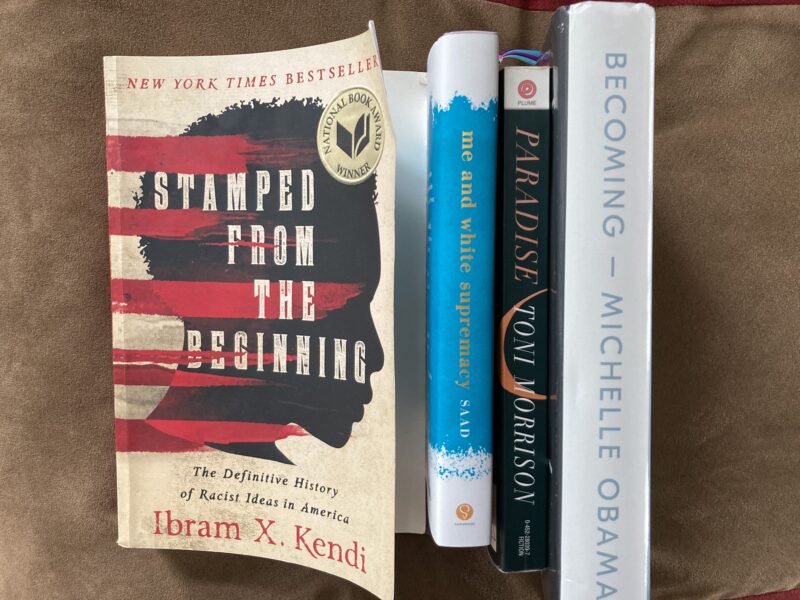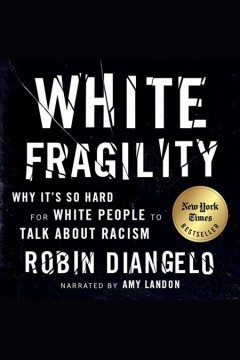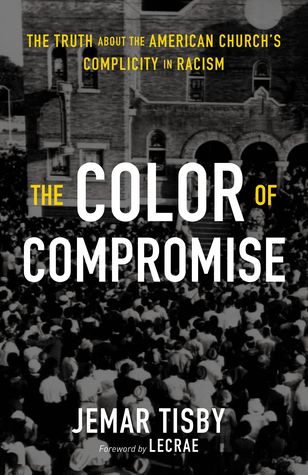The earliest I remember thinking about race was in high school. I had a close friend, who was white, and her parents told her she could never, ever date a black guy. So, she was only interested in dating black guys. I remember feeling that somehow her parents’ blanket disapproval of all black boys was wrong, but I don’t know if I labeled it racist. I should have.
Later, when I started college at UVA in 1989, racism became a more obvious issue. A pair of black girls from Philly lived across the hall from me, and I remember two things vividly: “Pump Up the Jam” blasting in their room, and the fact that one of them refused to speak to any of the white girls on the hall. She announced at a hall meeting early in the year that the white man had planted AIDS in Africa to kill the black man, and she had no desire to get to know any of us.
I was shocked. I never thought of myself as racist, yet this girl was calling me just that. How could she accuse me of racism and refuse to speak to me before knowing me at all? Her words and actions were hard to take, and yet they forced me to think about my race and the implications of racism more than I ever had before.
Her roommate, by contrast, entered into dialogue with all the girls on the hall. She explained how it felt to be the only black person in a room full of white people. She even offered to take us to a black party, so we could experience how it felt to be in the minority, if only briefly. None of us took her up on it. This girl was thoughtful and articulate, and yet I never took the time to get to know her. That was a waste.
Now, in the chaos of 2020, the topic of racism has captured my full attention. In the past thirty years, I’ve been concerned about racism – during the Rodney King trial, during Barack Obama’s campaign and presidency, while reading the novel Small Great Things, while following news about Colin Kapernick’s actions- but I’m embarrassed that I’ve never thought deeply about it and its implications until now. The Ahmaud Arbery case tipped me over the edge, perhaps because I love to run. I was horrified that an unarmed man out for a neighborhood run could be shot dead. As I watched the video of Arbery grabbing the shotgun pointed at his chest, I wondered what had happened to make him act so boldly. I wanted to learn more. The months that followed have only reaffirmed that reaction.
These days, I struggle with what to do, both as an individual and as a member of society, about racism. I marched for Black Lives Matter in June and personally thanked the 18 year old girl who organized the protest, but that hardly is enough. How can I meaningfully examine and act on this incredibly complicated issue? I can start by educating myself. That means consuming content from multiple and varied sources that overtly and subtly address the topic of racism.
Here’s what I’ve read/ listened to so far:
- Becoming, by Michelle Obama. Memoir. Obama describes her rise from humble beginnings to Princeton, a job with a large legal firm, and a “swerve” to public service. Explores family, career, the balance between the two, and the desire to serve and have a positive impact on the world.
- The Audacity of Hope by Barack Obama. Memoir. Written before he was president, the book describes Obama’s experiences as a senator and the challenges of creating meaningful change in a politically polarized environment.
- White Fragility by Beverly DiAngelo. Adult non-fiction. Explores the social structures and attitudes that contribute to racism in America. Examines the reasons why white people have a hard time talking about racism.
- “The Dehumanizing Condescension of White Fragility“, by John McWhorter, The Atlantic, July 2020. A criticism of White Fragility.
- Such a Fun Age by Kiley Reid. Adult fiction. Tells the story of a young black woman named Emira and how race complicates her romantic and work relationships.
- Ghost by Jason Reynolds. Middle grade fiction. Castle Crenshaw, AKA Ghost, is excited to be recruited to a city track team, but he must figure out if he’s running for fun, or running from himself.
- A Long Way Down by Jason Reynolds. Young adult. A novel in verse exploring a neighborhood shooting and how it affects the people involved, especially a young man on a mission to retaliate.
- Paradise by Toni Morrison. Adult fiction. Morrison tackles complicated issues: the interactions between black and white, woman and man, outcast and chosen. It’s not an easy read, but it is a worthwhile one, especially these days. “So the venom is manageable now. Shooting the first woman (the white one) has clarified it like butter: the pure oil of hatred on top, its hardness stabilized below.”
- Code Switch Podcast, NPR. Explores the impact of race on all parts of society: politics, pop culture, sports, health. It’s where I heard about Such a Fun Age and learned what “a Karen” is.
Next up for me:
- Stamped by Ibram Kendi, and I got the Stamped: Racism, Anti-Racism, and You, a Stamped remix by Jason Reynolds and Ibram Kendi for my kids
- Me and White Supremacy by Layla F. Saad
- The Color of Compromise by Jemar Tisby
How are you responding to the national reckoning on racism? What have you read lately that has informed your opinions and understanding? Please share helpful and relevant titles below.
Thanks for getting thoughtful with me!





Julia,
You’re ahead of me on the reading list, but I have seen some great movies. The best so far was “I’m Not Your Negro,” with James Baldwin. Also, “If Beale Street Could Talk” written by James Baldwin, was great. We’re movie watchers as well as readers.
Jane
Excellent! Thanks for the suggestions! 😊
Julia,
As usual, this is a thoughtful post about racism. I have had even fewer direct opportunities to acknowledge the racism around me so I appreciate you recounting yours here for us. I, too, am making an effort to educate myself about the problem and learn more so I can aspire to not be part of the problem.
Thank you Jane! I struggled with writing this post and appreciate you sharing. If you come across good reads, please share them!